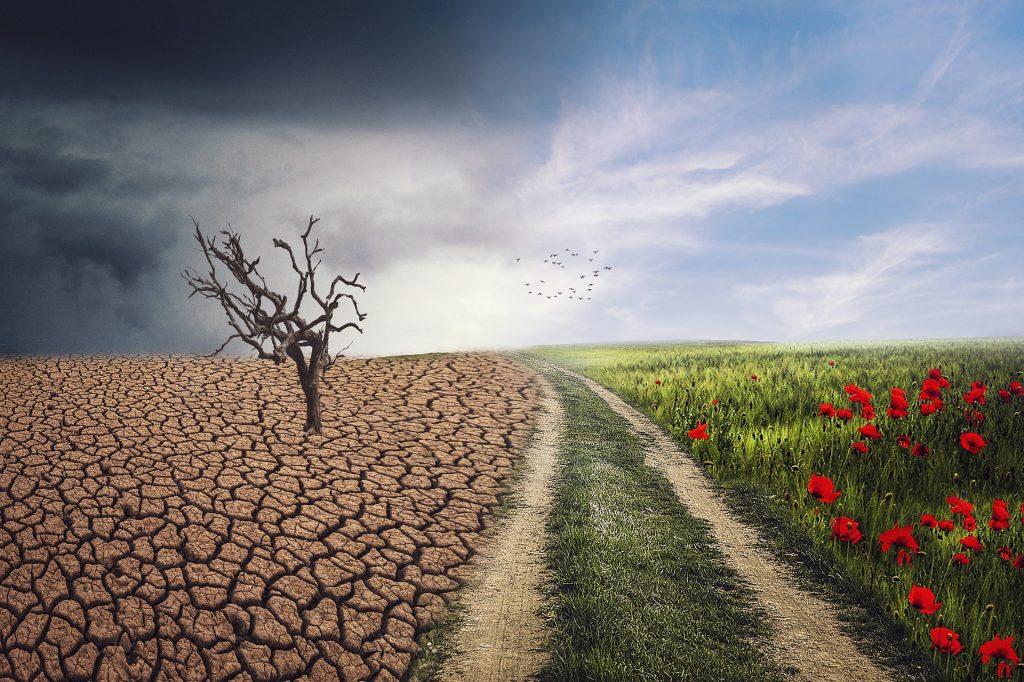How can we deal with the impact of climate change on life on Earth?

Applied research
Description
Climate change is no longer a distant threat, it is a present-day reality with far-reaching consequences for ecosystems, societies, and individual lives. From extreme droughts, floods and wildfires to sea level rise, biodiversity loss and declining food and water security, the ripple effects of a warming planet are being felt in every corner of the world.
While we know many of the core causes of climate change, significant uncertainty remains around the tipping points of the climate system and the scale of future disruptions. What we do know is that we can no longer focus solely on prevention, we must also address how humanity can live with the consequences already unfolding. Moreover, many consequences are interconnected: extreme weather damages infrastructure and ecosystems, disrupts economies, displaces communities, and increases the risk of conflict and public health crises.
The emergence of artificial intelligence introduces a double-edged dynamic: AI is being deployed to monitor climate risks, optimize infrastructure, and improve agriculture and logistics. Yet at the same time, AI contributes to the problem, with high energy and water consumption, carbon emissions, and unclear environmental accountability. How can we manage this paradox? They also raise new ethical questions: Who controls these technologies? Who benefits? And who bears the burden?
In addition to the environmental, economic, and political challenges, climate change also brings psychological and societal dimensions that are too often overlooked. Anxiety about climate change, also known as climate grief or eco-anxiety, is rising, especially among young people. There is a growing need for education and public dialogue that acknowledges these emotions while empowering communities to act.
This challenge invites you to explore the multilayered consequences of climate change, and to propose innovative, responsible, and inclusive strategies for adaptation and resilience.
The main goal of this challenge is to investigate what the impact will be of climate change on living on earth, and how we can deal with climate change related crises at best.
Perspectives and possible directions
This challenge is broad and complex, requiring collaborative, creative, and interdisciplinary approaches.
Some possible directions include:
-
Investigating how climate change disrupts livelihoods, public health, infrastructure, and mobility, and what strategies can increase resilience across regions and populations.
-
Exploring how societies can prepare for and adapt to new patterns of climate-induced migration and displacement, while ensuring human rights and social inclusion.
-
Analyzing the economic and legal dimensions of climate adaptation, such as global financing mechanisms, insurance models, climate liability, or access to justice for affected communities.
-
Examining how psychological responses to climate change (e.g. anxiety, denial, activism) influence public discourse, policymaking, and individual behavior.
-
Reflecting on the narratives, values, and worldviews that shape our understanding of the climate crisis, and how education, media, and culture can promote collective responsibility.
-
Assessing how power, privilege, and historical inequalities intersect with climate vulnerability and inform climate policy on national and global scales.
-
Evaluating the opportunities and risks of digital and AI-driven innovations in climate monitoring, communication, or decision-making. How can we ensure these tools serve both environmental goals and social justice?
-
Designing scenarios or frameworks for just transition policies and ensuring that communities, economies, and ecosystems can shift toward sustainability without leaving anyone behind.
